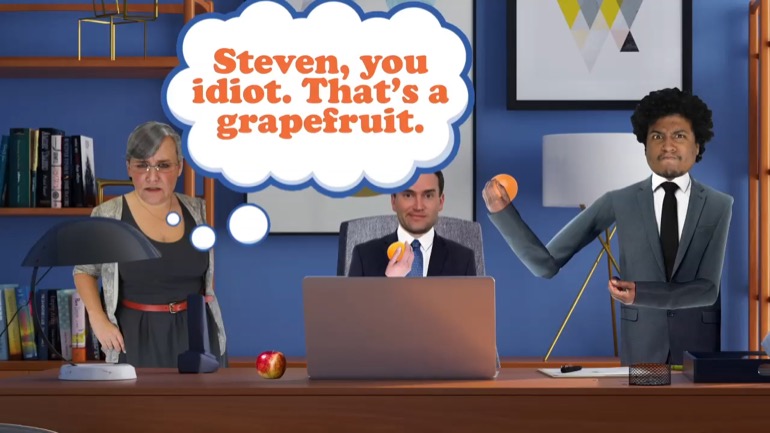ShmoopTube
Where Monty Python meets your 10th grade teacher.
Search Thousands of Shmoop Videos
Muni Bonds Videos 71 videos
Maturity is, quite simply, the date when a debt becomes due. As for our maturity, well... we're still giggling about the word "due."
What are Freddie Mac and Fannie Mae? They sound like snack cakes to us, so, uh...maybe we should watch this video.
What are Bond Anticipation Notes (BANS), Revenue Anticipation Notes (RANS), and Tax Anticipation Notes (TANS)? BANS, RANS and TANS are all short-te...
Finance: What are Treasury Bills? 15 Views
Share It!
Description:
What are Treasury Bills? Like other debt finance platforms, the US government issues its debt in several ways, and has different terms for each. Treasury Bills are zero coupon US government debt instruments that have a monthly, quarterly, 6 month and 1 year maturities. They are sold at a discount to face value par, so the difference between their discount and the full value is the commensurate interest.
- Social Studies / Finance
- Finance / Financial Responsibility
- Life Skills / Personal Finance
- Finance / Finance Definitions
- Life Skills / Finance Definitions
- Finance / Personal Finance
- Courses / Finance Concepts
- Subjects / Finance and Economics
- Terms and Concepts / Banking
- Terms and Concepts / Bonds
- Terms and Concepts / Charts
- Terms and Concepts / Company Management
- Terms and Concepts / Credit
- Terms and Concepts / Econ
- Terms and Concepts / Ethics/Morals
- Terms and Concepts / Insurance
- Terms and Concepts / Investing
- Terms and Concepts / Metrics
- Terms and Concepts / Muni Bonds
- Terms and Concepts / Retirement
- Terms and Concepts / Tax
- Terms and Concepts / Trusts and Estates
- College and Career / Personal Finance
- Finance and Economics / Terms and Concepts
Transcript
- 00:00
finance a la shmoop. what are Treasury bills? well the US government is a
- 00:07
financial pig. it borrows money all the time [pig crosses screen]
- 00:11
snort snort. well somebody's gotta buy vibrating back massagers for all those
- 00:15
senators. tea bills are just one way in which the government raises cash for
- 00:20
itself to you know buy things. the deal works like this.
Full Transcript
- 00:23
investors write a check to the US government taking their hard-earned cash
- 00:28
and giving it to Uncle Sam who in return gives them a piece of paper promising to
- 00:34
pay them back in a short ish period of time .while tea bills are like that
- 00:38
they're typically short in duration and they sell at a discount to par like a
- 00:43
zero coupon bond .meaning that an investor might pay nine hundred eighty [zero coupon bonds explained]
- 00:49
two dollars for a thousand dollar par bond which comes due in six months. the
- 00:54
investor for loaning the government her nine hundred eighty two dollars in cash
- 00:58
for six months gets paid eighteen dollars in rent on that money. there are
- 01:03
no interest payments made along the way as there would be in a traditional bond
- 01:07
investment which typically pays interest twice a year. in this case the investor
- 01:12
is just buying a grand at a discount. simple .and note that in this case the
- 01:16
investment return is eighteen bucks on a grand for six months. that implies an
- 01:21
annualized interest rate on the money ie over twelve months of what? mm-hmm we're [equation]
- 01:29
testing you here a little bit just seeing if you're awake. well if an
- 01:32
investor makes eighteen bucks in six months which is half a year if you
- 01:35
doubled the six months to be twelve months or a full year well you could
- 01:39
also double the eighteen bucks to be thirty-six bucks and yeah that's it.
- 01:43
notionally had the government rented that grand for a year it would have paid
- 01:48
thirty-six dollars for the privilege or three point six percent interest
- 01:52
annualized. thirty-six bucks over a grand. that's how we got there but it's not
- 01:58
quite accurate why? because the investor didn't put in a full grand ,they will
- 02:02
have put in less. well in this example they invested nine hundred eighty two
- 02:07
dollars and they got back eighteen bucks for six months of doing a whole lot of [piggy bank called "U.S gov."]
- 02:12
nothing. watching the clock and hoping the US
- 02:14
government wouldn't go bankrupt during that time period. so the interest rate of
- 02:18
return to the investor? well you take 18 bucks and divide it by 982 and you get
- 02:24
about 1.8 3% annualize it and you get a skosh more than 3.6 percent ie something
- 02:31
more like three point six six percent or so .small change but on big numbers that
- 02:36
adds up and now with investor money the government is free to do all its pork
- 02:40
spending. maybe a nice new sty for the Speaker of the House. what do you think? [pig walks on back legs through a store carrying a basket]
Related Videos
What's a dividend? At will, the board of directors can pay a dividend on common stock. Usually, that payout is some percentage less than 100 of ear...
GED Social Studies 1.1 Civics and Government
What is bankruptcy? Deadbeats who can't pay their bills declare bankruptcy. Either they borrowed too much money, or the business fell apart. They t...
How are risk and reward related? Take more risk, expect more reward. A lottery ticket might be worth a billion dollars, but if the odds are one in...










































































